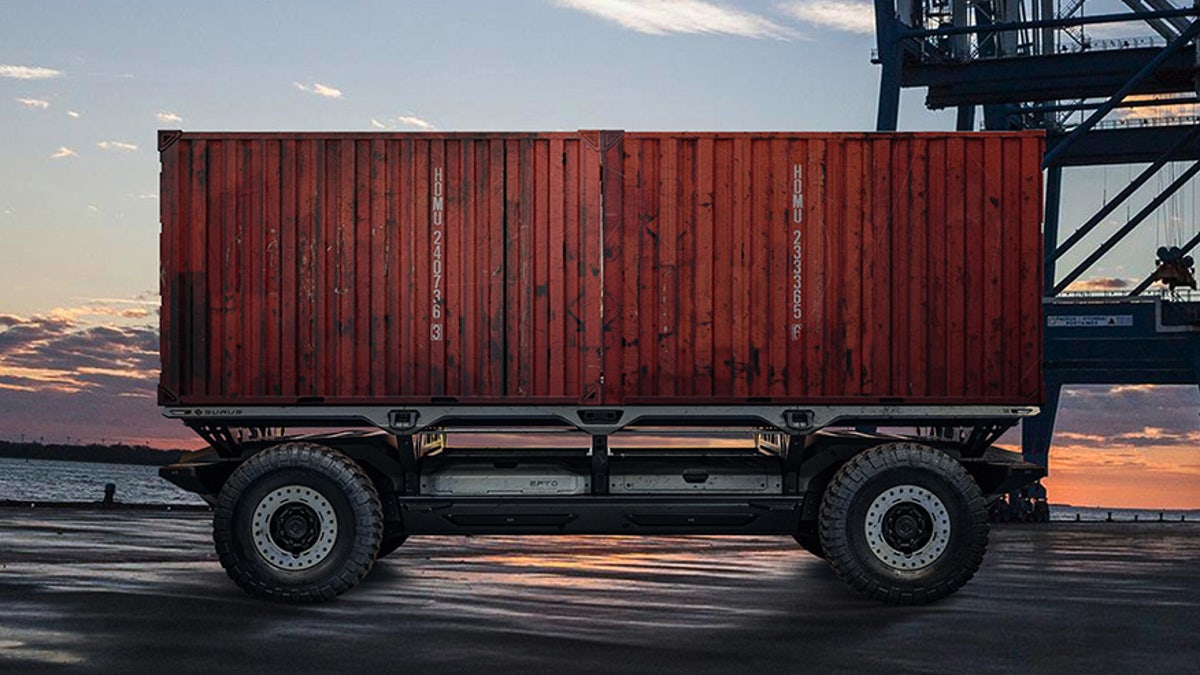
A rendering of the Silent Utility Rover Universal Superstructure (SURUS) platform with shipping containers to show the potential of flexible fuel cell solutions. SURUS was designed to form a foundation for a family of commercial vehicle solutions that leverages a single propulsion system integrated into a common chassis.
General Motors is developing a self-driving pack animal. Correction: self-driving pachyderm.
The SURUS borrows its name from a legendary elephant that helped Hannibal cross the Alps and turns it into an acronym that stands for Silent Utility Rover Universal Superstructure.
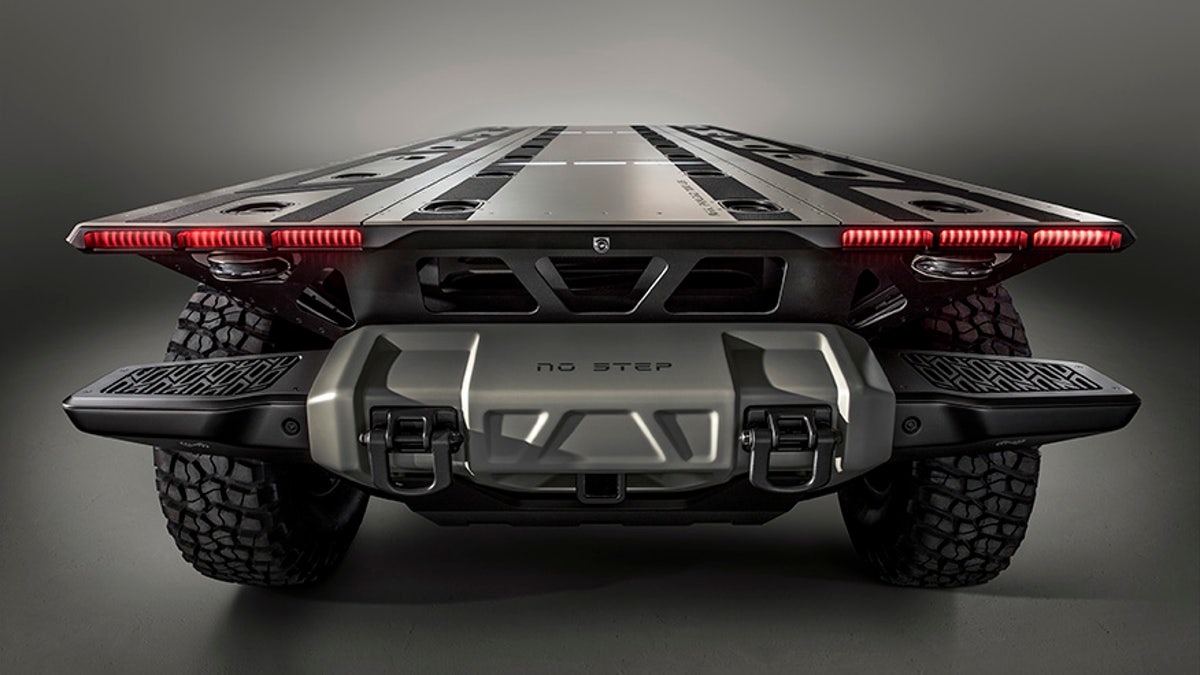
The SURUS doesn't need a place for passengers. (GM)
It’s a flatbed truck without a cab that’s equipped with a hydrogen fuel cell powertrain and fully autonomous driving capability.
GM is pitching the zero-emissions vehicle as both a commercial cargo carrier and military supply truck that can stealthily operate in warzones without putting troops at risk.
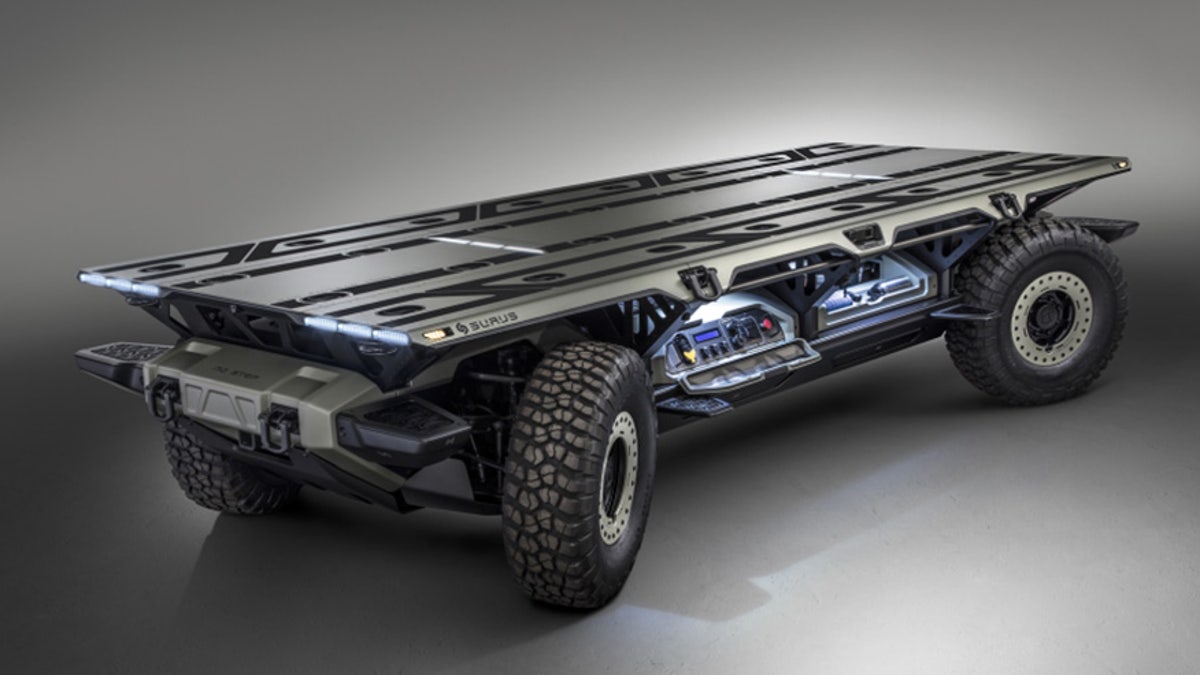
Twin hydrogen-powered drivetrains are located at each end of the vehicle. (GM)
The platform features an electric powertrain at each end of the vehicle that gives it four-wheel-drive for off-road capabilities and four-wheel-steering to improve its maneuverability in tight spaces.
A cab for a human driver and passengers can be attached to help lead several of the vehicles wirelessly linked in a virtual train.
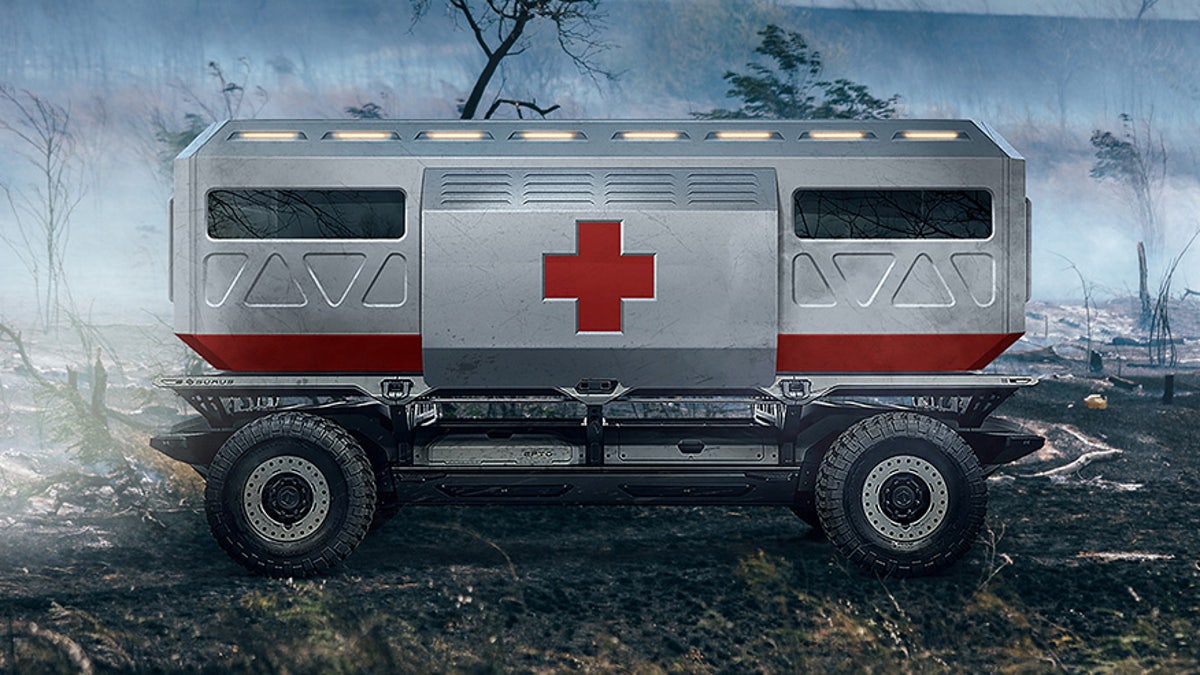
SURUS can be transformed for different tasks using modular containers. (GM)
Instead of loading it with gear or containers, modules outfitted as mobile hospitals or for other functions can potentially be attached.
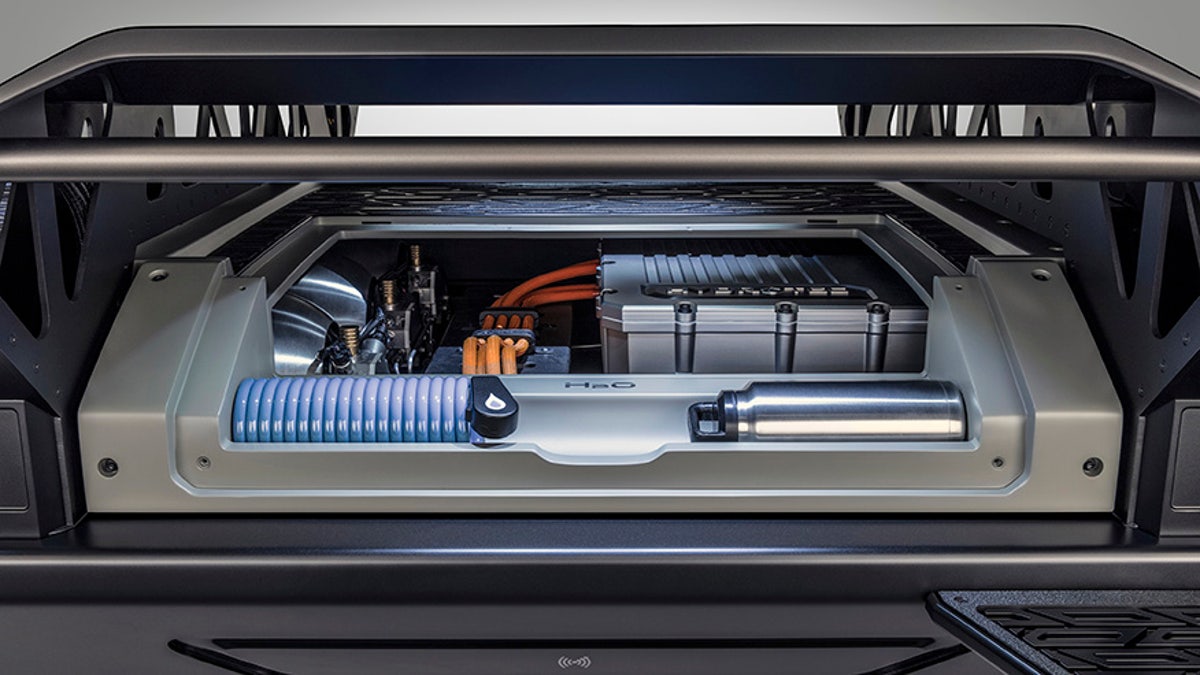
The fuel cell combines Hydrogen and oxygen to generate electricity. (GM)
GM says SURUS has a range of 400 miles per fill up of the hydrogen tanks built into the chassis, and can be used to generate power and produce water from its exhaust in remote locations.
The project follows the creation of a fuel cell-powered Colorado pickup called the ZH2 that is currently being tested by the U.S. Army’ Tank Automotive Research, Development and Engineering Center (TARDEC.)
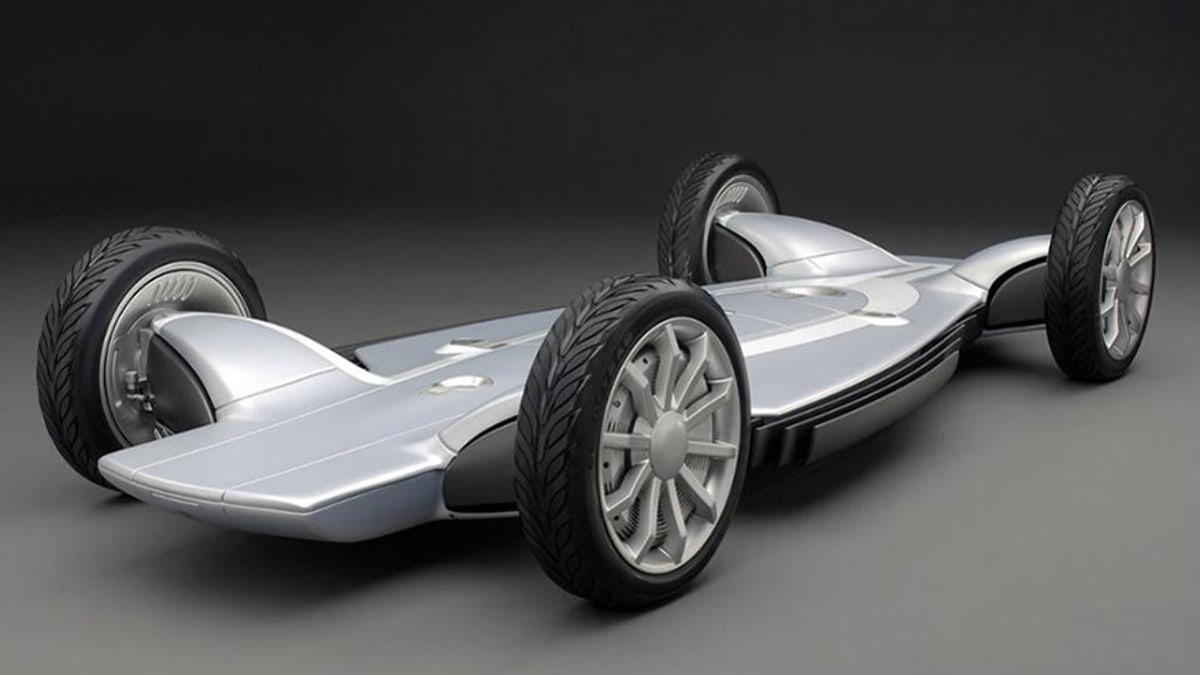
Autonomy was the car of the future circa 2002. (GM)
Fuel cell powertrains are nothing new to General Motors. It's spent billions on them since it unveiled the Autonomy concept in 2002, which was a hydrogen-powered chassis that was envisioned to work with different bodies, much like a passenger car-size version of SURUS.
The vehicle also brings to mind the ‘Autotrucks’ conceptual designer Nick Pugh created for the film ‘Logan’ starring Hugh Jackman.
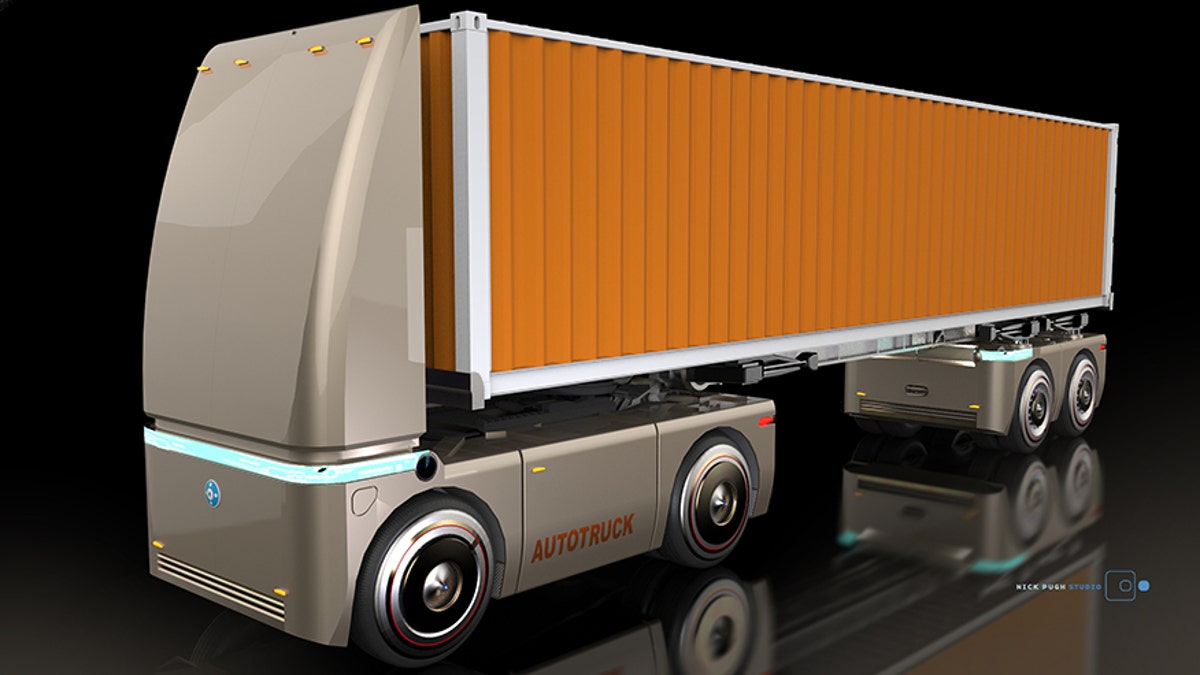
Designer Nick Pugh had no idea SURUS was in the works when he came up with the Autotruck for the film 'Logan.' (Nick Pugh/20th Century Fox)
Pugh’s idea was to separate the drivetrain into independent twin-axle pods that could travel in tandem to a loading area and pick up a shipping container at either end. They were a menacing and memorable element of the blockbuster, which was set in the year 2029.

Similar to SURUS, the Autotruck is a self-driving platform for moving goods. (Nick Pugh/20th Century Fox)
SURUS could be on the road, or at least lugging stuff around battlefields and worksites sooner than that. General Motors is in talks to provide TARDEC with a SURUS for an evaluation, and is working toward putting autonomous vehicles into production within a couple of years.
The SURUS is making its public debut at the Association of the U.S. Army's annual meeting in Washington, D.C., Oct. 9-11.



















